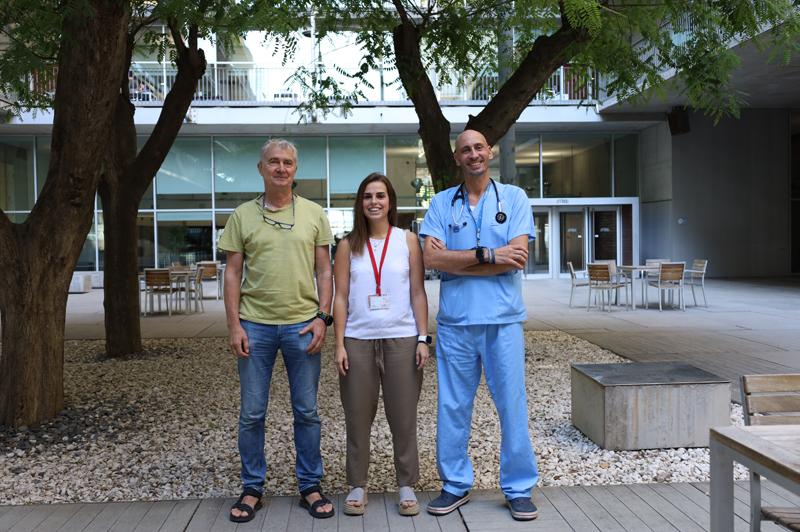
27/10/2022 - Covid-19
A study by the Hospital del Mar Medical Research Institute and Pompeu Fabra University has found that not all HIV patients respond adequately to the SARS-CoV-2 vaccine. The work has been published in the journal Frontiers in Immunology.
Up to 20% of people with HIV being treated with antiretroviral drugs do not regain normal levels of immune cells in their blood. These people, with a depressed immune system, are considered to be at risk of SARS-CoV-2 infection and were prioritised in the COVID-19 vaccination strategy, just as other at-risk groups were. However, until now it was not known how they responded to immunisation with RNA-based vaccines, such as those from Pfizer and BioNTech. Work by the Infectious Pathology and Antimicrobial Research Group at the Hospital del Mar Medical Research Institute and the Infection Biology Research Group at Pompeu Fabra University analysed this in the world's first study in this field, published in the journal Frontiers in Immunology.
The researchers monitored the immune response of ten people with these characteristics after the first and second doses of the vaccine. They compared this with ten other people with a normal immune system. According to Dr. Robert Güerri, lead author of the study, a researcher at the IMIM-Hospital del Mar and section chief of the Infectious Diseases Service at the Hospital del Mar, the results indicate that "50% of these people had an insufficient immune response; five of the ten cases analysed. But in those who received a third booster dose, this response improved."
Volunteers who exhibited an insufficient response were offered a booster dose of vaccine. Only three accepted. In these cases, the analyses showed a positive treatment effect against COVID-19. The researchers have not been able to attribute the different immune responses to any particular factor. The vaccination did not affect HIV control and no significant adverse effects were detected.
Personalised follow-up
The results lead Dr Güerri to conclude that "In this group of patients, which may account for up to 20% of people with HIV infection, it is necessary to provide specific follow-up; they cannot be treated as if they were a normal immunocompetent group, in other words, a patient with HIV who has responded completely to treatment, instead it is necessary to individualise their follow-up. This means measuring the response to the vaccine."
In the same vein, the coordinator of the Infection Biology Research Group at the UPF and lead author of the study, Dr Andreas Meyerhans, points out that "When a person with HIV is vaccinated, we assume that there is a pattern of response and that they achieve a good level of protection against infection. However, in the group studied, it was necessary to confirm this with specific tests, of both cellular and humoral immunity, to see the degree of response generated, because their response is much more variable." Dr. Marta Sisteré-Oró, a researcher from the same UPF group and one of the main authors of the study agrees. She concludes that the study shows that "50% of patients with immunologically non-responsive HIV show an insufficient immune response once vaccinated against COVID-19, which is why it is important to increase these responses in these people."

From left to right: Andreas Meyerhans, Marta Sisteré-Oró and Robert Güerri.
Reference article
Sisteré-Oró M, Andrade N, Wortmann DDJ, Du J, Garcia-Giralt N, González-Cao M, Güerri-Fernández R, Meyerhans A. Anti-SARS-COV-2 specific immunity in HIV immunological non-responders after mRNA-based COVID-19 vaccination. Front Immunol. 2022 Aug 26;13:994173. doi: 10.3389/fimmu.2022.994173. PMID: 36091014; PMCID: PMC9459333.
Servei de Comunicació:
Marta Calsina Freixas(ELIMINAR)
Tel:
(+34) 93 316 06 80
Doctor Aiguader, 88
08226 Barcelona
© Institut Hospital del Mar
d'Investigacions MèdiquesLegal Notice and Privacy Policy | Cookie Policy | Site Index | Accessibility | Find Us | Contact